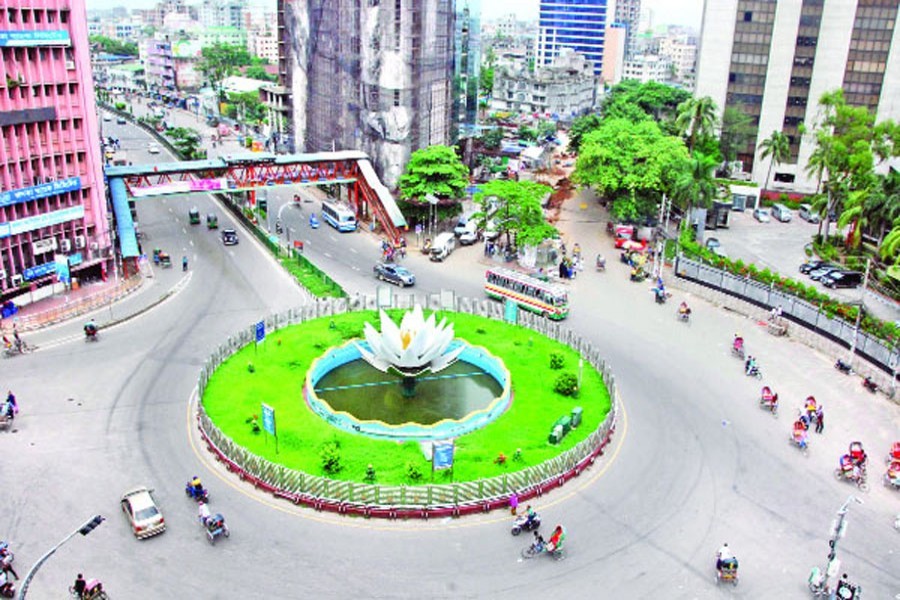There are lots of people in the world who have never bothered in their life to visit a theatre to watch a movie, a play or enjoy an opera. Many others have never read a book after passing out of an institution of higher education. The book could be a fiction, the memoirs of a legendary person or a travel account.
A group of people belonging to the educated segment of Bangladesh are included among them. They continue to pass their time in the present outwardly stifling shutdown, endlessly carping about the imposition of the coronavirus prevention measures. During the times of a siege, the present coronavirus outbreak being one, some other groups of people cannot manage to feel how time flies away; in fact they hardly feel bored on being forced to stay indoors. To them every moment of life, even during ordeals outside, is filled with joy. In spite of being empathetic to others' sufferings, they take out chunks of time to immerse in them and discover the positive aspects of life.
A lot of others engage in the spiritual quest for the meaning of survival. As a common norm, people in the modern age spend a considerable length of time on the internet, social networking outlets etc. during the times of social or health-related quarantines. Bangladesh is passing through such a phase.
The world has seen many such periods of isolation from the outside world during continent-wide pandemics, great wars, invasions of enemy forces etc. In the 20th century, these ordeals were unleashed on humanity on several occasions. Some of them were nakedly racially skewed, and thus, ended up being tools of continued persecution of certain sections of people.
During these terrible times, certain communities were forced to lock themselves in hideouts. Information of their whereabouts remained closely guarded.Any leakage would invite deaths or annihilation of a whole community perpetrated by the xenophobic forces. This very spectacle dominated the lands occupied by the invading forces of Hitler during the six long years of World War II. Never in the past had mankind gone through such a nightmarish time which it experienced during Hitler's occupation.
Like all other dictators, Hitler, too, wore the façade of an admirer of the fine arts. Moreover, an evil genius as he had been he was able to foresee the potential of the cinema in spreading the Nazi agenda. A lot of official propagandists of the Fuhrer led by his minister Joseph Goebbels helped blow up his reputation as a real connoisseur of all creative arts. The fact was partly true. For during his rule, in a large swathe of the world theatres were kept open. Those were manned by a group of Nazi-backed movie makers. All of the theatres screened movies highlighting the Nazi programmes aimed at building a 'new world order'. The major figures in the German cinema representing the 1930s and '40s had by then already left the country for other lands, supporting the allied forces or the neutral ones. In order to evade the wrath of the Gestapo, lots of people felt compelled to watch the German propaganda films. Apart from going to the theatres, people interned in their ghettoes, or virtual concentration camps, would listen to Nazi radio propaganda or read books promoting Hitler's political theories. This style of passing time with propaganda books, and highly biased radio programmes - compulsorily, was unique to the Nazi Germany. Many people in the countries under the siege of foreign occupations or pandemics are seen passing their time in their homes in aberrant ways.
France was under Nazi occupation in 1940-1944; so was London under Nazi blitz (Sept 1940-May 1941). Parts of Britain were under Nazi occupation till 1945.But the writers in the UK in those difficult times mustered their courage and creative flair to produce a corpus of war literature.Besides being engaged in creative activity and publication of war-time bulletins, the young French writers organised underground armed resistance against the Nazi occupation. Lots of common Parisians and Londoners participated in these activities.
Given this picture showing the persecuted people's pastime filled with activities, the spells of boredom gripping people under a shutdown emerge as mere myth.The 21st century is free of global wars. But currently it is watching a pandemic raging worldwide. Bangladesh is one of the countries hit by this dreadful enemy. It has led to a 'social distancing' shutdown. On being thrust into this state of pandemic-related siege, many began worrying about how they would spend their time in home confines. They didn't have to wait longer. It is the age of varied types of online platforms helping people remain self-confident. For the people long stuck to printed books, not available at home now, there are scores of sites of books online. Apart from them, the digital media has brought the previously held cultural and sport events to the living room. Lately, an online film festival has created a lot of stir among the movie lovers. Although the ongoing corona pandemic times do not fit in with entertainment and leisurely pastime, the latter at times emerges as a necessity, and is required for a heroic survival. A sound state of mind also emboldens man to face challenges -seen or unforeseen.
Already tired and bored people have immensely added to the gloom of those around them. People in this country are used to the times of siege. Notable of them is the nine-month-long occupation of the land by the marauding forces out to crush their war of independence. Freedom-loving people in occupied Bangladesh were able to consolidate their heroic spirit by engaging in activities aimed at achieving independence. Likewise, the present shutdown could also be turned into a time to devise preventive steps targeting the coronavirus, and formulate strategies to crush it finally. Sometimes resistance and positive wars are greatly shaped by constructive thinking.


